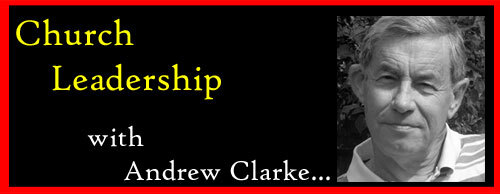
432.4K
Downloads
3357
Episodes
G’day and welcome to Partakers Christian Podcasts! Join us for uplifting Bible teaching, inspiring readings, heartfelt worship, powerful prayers, and fascinating church history. Whether you’re new to faith or growing deeper in your journey, we’re here to encourage and equip you. 🎧 Tune in, interact, and be inspired—wherever you are in the world.
G’day and welcome to Partakers Christian Podcasts! Join us for uplifting Bible teaching, inspiring readings, heartfelt worship, powerful prayers, and fascinating church history. Whether you’re new to faith or growing deeper in your journey, we’re here to encourage and equip you. 🎧 Tune in, interact, and be inspired—wherever you are in the world.
Episodes

Tuesday Sep 17, 2024
Church Leadership 07 - What can we learn from Timothy
Tuesday Sep 17, 2024
Tuesday Sep 17, 2024

Church Leadership
Session 7:
“What can we learn from Timothy – a New Testament Church leader?
- Timothy was a teenager when he met Paul. His family lived in Lystra so he was a Galatian. His father was a Greek man; we know nothing of his faith. But Timothy’s mother and grandmother were faithful Jewish women who taught the Old Testament scriptures to their son/grandson (Acts 16:1; 2 Timothy 1:5).
- In Lystra, during Paul’s second missionary journey, he learned that Timothy had an exceptional reputation among the local Christians (Acts 16:1-2);
- Because he came from a mixed racial background, in which his mother was Jewish and his father was Greek, his familiarity with the Jewish and Greco-Roman cultures made him an ideal travelling companion for Paul.
The life of Timothy gives us many examples that we can use both in our personal lives and as leaders.
Timothy was a team player: He joined Paul and Silas in telling Jesus’ followers what the apostles and other leaders in Jerusalem had decided at the recent conference (Acts 15:19-20; 16:4). These apostles urged their fellow Christians to follow these instructions. As a result of the witness of Paul, Silas, and Timothy, the churches grew stronger in their faith. Each day, more people came to faith in Jesus (Acts 16:5).
Timothy was set apart by prophesy: Paul reminded him of this is 1 Timothy 1:18 and 4:14 and urged him not to neglect the gift he had been given.
It took time, in distinctive ministry environments, for Timothy to mature and become an effective Christian leader. Similarly, our path to maturity and increasing ministry effectiveness does not take place all at once. Instead, the process of spiritual growth occurs in differing circumstances involving numerous people, often over many years.
Timothy served the Church in an unselfish manner. In our contemporary, “celebrity culture”, there is the temptation to make ourselves the centre of our ministry endeavours. We must conscientiously resist this trap, remembering that the proclamation of the gospel and the building up of believers are intended to bring glory to God – not to make a name for ourselves.
Paul encouraged Timothy to remain faithful to his pastoral call and duties. The Holy Spirit has called us to a life of devoted Christian service, which must include looking after to our own spiritual needs, as well as being attentive to the concerns of Jesus’ followers around us. It is a lifelong responsibility that requires our active involvement.
Timothy was effective in ministry because he remained committed to the gospel. If we fail to uphold the historic teachings of Christianity, we undermine the effectiveness of the Gospel.
Timothy was accountable to God for his actions. The Lord holds us responsible for what we think, say, and do. This should serve as an incentive for us to be faithful stewards of the time, talents, and treasures the Lord has entrusted to our care.
God’s power and love in Timothy’s life enabled him to be fearless in Christian service. The Lord promises to be with us as we are courageous in sharing the good news with others. The Holy Spirit can give us the insight and energy we need to be effective witnesses for Jesus.
Timothy refused to become side tracked by dead-end philosophical issues. We also must not allow ourselves to be distracted by pointless matters that consume the attention of false teachers and time wasters. Our God-given mandate is to herald the gospel, encourage those who are struggling, and confront those in the Church who need a “prod” from time to time. The Holy Spirit can empower us to remain calm and patient as we shoulder our important, but often difficult, leadership responsibilities.
Towards the end of his first letter to Timothy, Paul urges Timothy to “fight the good fight of the faith” (1 Timothy 6:12) and towards the end of his second letter, he tells Timothy: “I have fought the good fight, I have finished the race, I have kept the faith” (2 Timothy 4:7). Paul was not asking Timothy to do anything he was not prepared to do – what a testimony to an incredible “spiritual father”.
We could not leave this brief look at Timothy without commenting on his age – he was a still a young man when he was at Ephesus (“Don't let anyone look down on you because you are young” – I Timothy 4:12). Paul urged him to “flee the evil desires of youth” (2 Timothy 2:22). He goes on to expect him to live right – read these two verses again in their context. Age is no barrier to service for God – we can’t say we are too young or too old.
Years ago, I picked up a leaflet at a church on the Channel Island of Guernsey. Among other things, it included the following:
when God called him to leave all he knew behind
Samuel was called by God to be a prophet
when he was still a child.
Mary was called as a young woman
to be a mother - with a difference
And over the twenty centuries of the Christian church,
God has continued to call young and old,
rich and poor, to follow Christ in specific ways.
He’s still doing it today - If we’re listening.
A prayer: Father, thank You for the example of Timothy – may we serve You well, whatever our age, experience (or lack of it) and, for those who are older, may we continue to run the race effectively.
Amen
Next time we will look at Stephen – an amazing example of a deacon.

No comments yet. Be the first to say something!